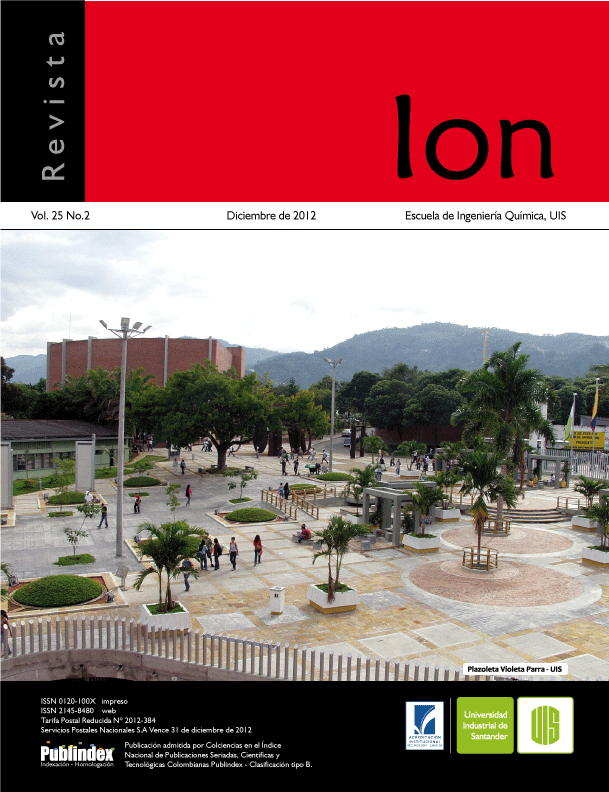Publicado 2013-02-26
Cómo citar
Resumen
Resumen
El látex de caucho natural es la materia prima para la fabricación de diversos elementos utilizados en la industria y la calidad de ellos está ligada a la composición del látex fresco preservado. La norma ASTM D1076 presenta un método para la determinación del CST, CCS y Ácidos Grasos Volátiles (AGV), entre otras propiedades, para el látex natural; este método resulta ser largo y tedioso, por tal razón se busca una forma de caracterización del látex natural que ahorre tiempo y facilite su obtención. El objetivo de este trabajo es determinar el CST, CCS y AGV en el látex natural por termogravimetría. Para esto se sometieron muestras de látex natural a análisis termogravimétrico bajo una atmósfera inerte y los resultados fueron comparados con los obtenidos en los métodos señalados por las normas ASTM D1076, lográndose fnalmente un método de caracterización viable con una varianza entre los dos métodos de 0,45 para los valores obtenidos de CST y una varianza entre los dos métodos de 0,13 para el CCS comparado con los valores obtenidos en las condiciones dadas por la norma. Por otra parte, no fue posible determinar el contenido de AGV por termogravimetría pues la pérdida de masa de estas sustancias se encuentra en el mismo intervalo de temperatura del agua. Adicionalmente, se realizó una caracterización cualitativa por FTIR de la fase densa y la fase acuosa del látex natural, lo que permitió la identifcación de grupos funcionales correspondientes al poliisopreno, proteínas y carbohidratos en la fase densa del látex.
Palabras clave: ATG, ASTM D1076, Hevea Brasiliensis, caucho natural.
Abstract
Natural rubber latex is the raw material for the manufacture of various products used in the industry and the quality of them is associated to the composition of fresh latex preserved. ASTM D1076 presents a method for the determination of TSC, DRC and VFA, among other natural rubber latex properties. This method turns out to be long and tedious, therefore it is looking for a way to characterize the natural latex to save time and to easy operation. The aim of this study is to determine the TSC, DRC and VFA in the natural latex by thermogravimetry. In order to achieve this objective, latex samples were submitted to thermogravimetric analysis under an inert atmosphere and the results were compared with those obtained in the methods described by ASTM D1076, achieving a viable method of characterization for the determination of TSC and DRC with an variance between two methods of 0.45 from the values obtained for TSC and an variance between two methods of 0.13 for DRC compared with the obtained at ASTM conditions. In the other hand, it was not possible to determine the VFA content by thermogravimetry because the mass loss of these compounds occurs in the same temperature range than the water. Additionally, a qualitative characterization by FTIR of the dense phase and the aqueous natural rubber was performed, which allowed the identifcation of functional groups corresponding to polyisoprene, proteins and carbohydrates in the dense phase of the latex.
Keywords: TGA, ASTM D1076, Hevea Brasiliensis, natural rubber.

